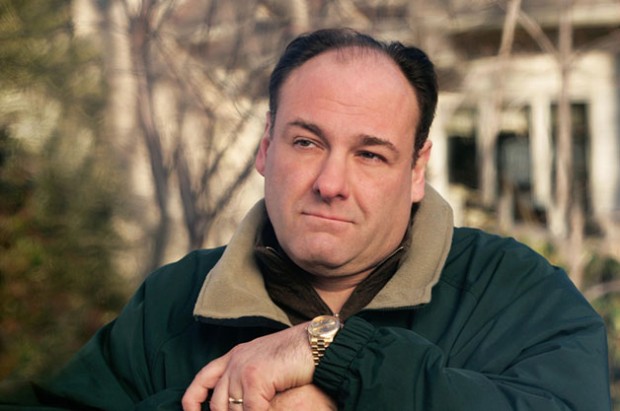Across all of fiction, there is an extremely limited number of characters I’ve spent a larger length of time with than Tony Soprano, the New Jersey mobster positioned as a central figure over eighty-six one-hour episodes of HBO’s seminal series. To that end, I can’t claim to have ever felt more conflicted about one, either: A selfish, terrible human being though he may have been, his pitch-black center is what made the soft, vulnerable, at occasional turns empathetic edges stand out so strongly. By the time his anxiety-stricken face looked up at a jingling door as Journey blasted from the jukebox of a New Jersey diner, he also felt as close to real as any scripted person — and even if The Sopranos did not turn out as one of the greatest, most genuinely important shows in the history of television, the job would have forever sealed any actor’s legacy. It’s doubtful they could do much else in the wake, too.
Yet it was on three separate occasions, over some two months — all within these past seven, no less — when I saw James Gandolfini onscreen: as a more down-on-his-luck mobster in Andrew Dominik’s Killing Them Softly; portraying CIA director Leon Panetta in Kathryn Bigelow’s Zero Dark Thirty; and taking the role of a frustrated, albeit caring father in Not Fade Away, his second and, now, final collaboration with Sopranos creator David Chase. It’s boggling that the extent of his contributions in such a short span of time would barely register. Here we have a trio of performances that were not only of a different flavor each time through, but somehow, yet, all carried with them the same distinguishable sense of character: whether he was making what is essentially a cameo or asked to go toe-to-toe with Brad Pitt for minutes at a time, Gandolfini was definitvely there.
How did it happen? How did an actor so comfortably walk in so many skins without once compromising their signature presence and technique? That I can’t explain it — that, it seems, none of us reacting with the same shock and sadness as of late are able to surmise a passable reason — is as close to the ultimate sign of versatility as we’d be able to figure. If one had not watched The Sopranos, the feat can be harder to grasp. By the time its six-and-a-half-season run finished in the spring of 2007, Gandolfini had become a genuine cultural icon — not simply through work, but in voice, physical appearance, and onscreen demeanor — the likes of which are seemingly inescapable for even the most gifted of players; to those watching his series from a young age, this was a man who may as well have been the face of organized crime in the 21st century.
It’s stranger, again, to note what number of his standout work emerged after the career-making phase, be it the aforementioned 2012 pictures noted above; as the buffoonish military commander in Armando Iannucci’s In the Loop, at once displaying both a sharp sense of comedic deftness and the ability to laugh at himself (e.g. the now-immortal Fred Flinstone reference); or, not least of all, Where the Wild Things Are, in which he delivered one of those rare vocal turns that truly earns the distinction of “acting.” While I have not seen Spike Jonze’s film since the theatrical release in October of 2009, it is nevertheless often that I’ve strongly recalled this unbelievable display.
For any performer to have accomplished this much in a single career is, nowadays, unprecedented; for what’s only noted to have been achieved from 1999 onward (and by the age of 51) can’t fully register; and that these are merely a greatest hits assortment is another matter altogether. Lest we forget, there is his work for the late Tony Scott — few acts of physical violence from any ‘90s film (even that of a more gruesome shade) ring as strongly as his centerpiece scene in True Romance, a moment that requires more bravery than we’re typically able to appreciate — The Mexican, The Man Who Wasn’t There, and even more “minor” titles such as The Last Castle. As the news continues to sink in, our perception of what a loss has been dealt can only expand.
So if this remembrance has a brief, scattered nature, it’s due in equal part to two things: the pall this news has quickly cast over the entertainment world and, in a brighter sense, what he contributed as an actor while still present — both as an entertainer and genuine artist. This point in mind, it’s arguably best to celebrate the man’s career how we like to think he’d have preferred: settling down for one of many dynamic performances delivered over the course of two decades. Personally speaking, some favorite Sopranos episodes sound like optimal viewing for these next few days. Maybe a bit longer.


